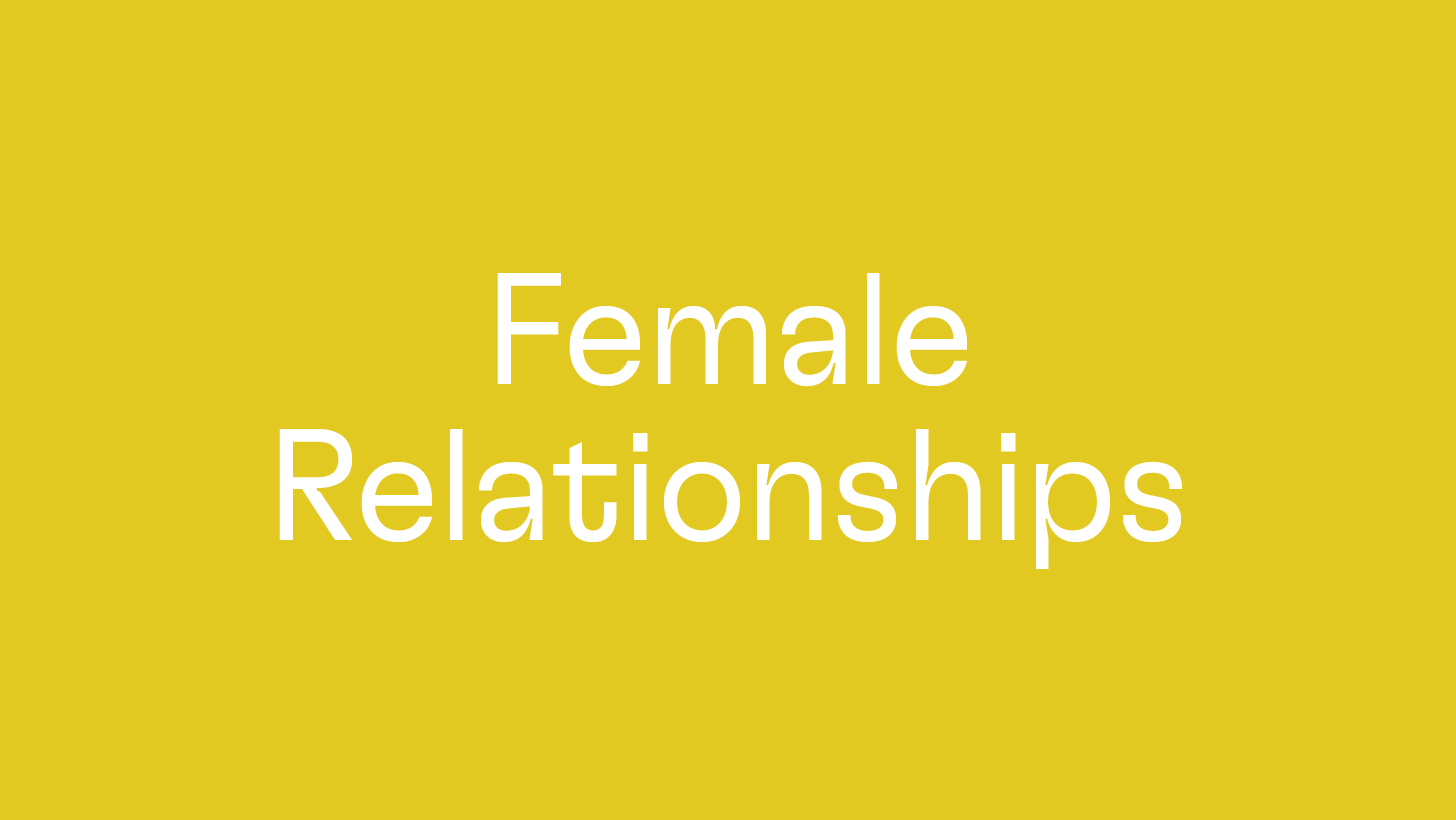This article is the compilation of our learnings from 9 global dinners held in 2019.
This April we held dinners on Female Relationships in ten cities: Caracas, San Francisco, NYC, Bogota, Seattle, Toronto, San Juan, Portland, Miami and Mumbai. Bringing a group of women to talk about relating to other women was a powerful (albeit meta) experience! Stories of sisterhood and intimacy became intertwined with those of struggle and loss, as we co-created a space of honest, authentic female relating.
Key takeaways…
1. Female relationships are our lifeblood
For some women around our tables, life is filled with deep and supportive relationships with other women. Yet for others, there was a sense of isolation, a lack of healthy connection with the women in their lives. Whatever the story, the love we have for women is so deep — and so too is the longing. At life’s difficult moments (eg. breakups, surgery, mourning), it’s women who we need by our sides. For it is with women that we can completely fall apart — and trust they will be there to take care of us when we sometimes cannot take care of ourselves.
But with so much love, comes great difficulty as well…
2. When it works, it’s unconditional love like no other….
For many of us, female relationships provide a profound depth of connection and support. Some have a “soul-mate friend” — that female friend who can almost fulfill the role of a romantic partner. They are our chosen family. These are the women in our lives that encourage us to be the best versions of ourselves, that love and support us without judgment, and always hold us accountable.
The cornerstones of these female relationships include:
· Celebration — To rejoice in one another’s joys
· Trust — The inner knowing that it is safe to be vulnerable
· Inspiration — A regenerative relationship, collaborative and creative
· Reciprocity — A healthy balance of give and take
3.
But when it doesn’t, we can feel utterly drained
There can be a dark side to female relationships. For some of us, this means the continuation of unhealthy patterns that we developed in childhood. Some of us grew up as the emotional “caretaker” of the women at home, and find ourselves in this same role with our female friends today. In these cases, it can feel like we’re always there to listen and support the women in our lives — but never receiving the same care in return.
The “dark side” of female relationships are all about:
· Competition — An erosive sense of scarcity, which can be especially potent amongst women in the workplace
· Betrayal — Using intimacy and vulnerability as a weapon
· Envy — Seeing another woman’s gain as my loss
· Depletion — Emotional vampires that take but do not give
4. The friend “break-up”
Whether it’s too draining, unsupportive or simply unaligned, we’ve all gotten to that point in a relationship with other women when it’s time to let go. However, unlike romantic relationships, we lack a roadmap for how to “break-up.” We’re so scared and guilt-ridden to hurt one another, that we’d rather quietly fade into the distance (e.g. ghosting!) rather than have an honest and difficult conversation. However, we’ve all come to realize that some female relationships are finite — and that’s really OKAY. How can we let people go in our lives in a way that feels compassionate, and with integrity?
5. Our love for other women is a reflection of our love for ourselves
We come from a woman, are women, and need women in our lives. Female relationships are our birthright. But ultimately, the most important female relationship we have is with ourselves. The more loving, connected, confident and courageous we feel inside, the better we will be able to support, love and champion the women in our lives. We have the ability to give and receive the kind of love and support that we deserve — and it starts with us.
Postscript
We spoke to women in their 20’s and women in their 60’s (and everywhere in between) and uncovered how female relationships can change with life experience. In our younger years, we all recall having that one “BFF” who meant the world to us. These hyper-intimate relationships typically lacked boundaries — we would do anything to please our friends. So for women in their 20’s and 30’s, the idea of friendship “break-ups” was awkward and confronting, something we prefer to avoid.
However, as we age, our relationships with other women evolve. Our lives get more full. We are more confident in creating and maintaining healthy boundaries to ensure balance with others. For the older women around the table, the friendship “break-ups” were not only a natural part of life, they were a gift that we sometimes need to give to ourselves.
Experiments:
Reflect on a female relationships in your life right now that needs to change. How can you make adjustments in an honest and compassionate way? Perhaps it’s a conversation, or maybe it’s a shift inside of yourself. Whatever your approach, we invite you to face this head on.
Small acts create big intimacy — they are the building blocks for trust in a relationship. Whether it’s sending a supportive text the day your sister is making a big career move, or checking in on a friend when they’re sick, what small act can you perform to show the women in your life that you care?
Written by Sybil Ottenstein and Veronica Marquez in collaboration with our hosts Esther Mateo in Caracas, Amy Subach & Danya Rose-Merkle in Portland, Rosalind Franklin in San Francisco, Rebecca Roebber in Seattle, Maria Sylvia Sahmkow in Bogota, and Dee de Lara in Toronto, Alexandra Suarez in San Juan
